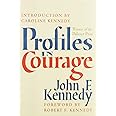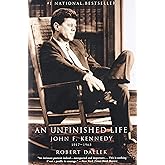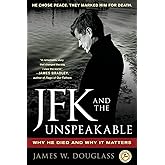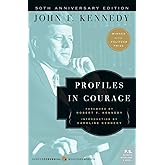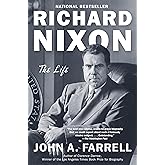
Amazon Prime Free Trial
FREE Delivery is available to Prime members. To join, select "Try Amazon Prime and start saving today with FREE Delivery" below the Add to Cart button and confirm your Prime free trial.
Amazon Prime members enjoy:- Cardmembers earn 5% Back at Amazon.com with a Prime Credit Card.
- Unlimited FREE Prime delivery
- Streaming of thousands of movies and TV shows with limited ads on Prime Video.
- A Kindle book to borrow for free each month - with no due dates
- Listen to over 2 million songs and hundreds of playlists
Important: Your credit card will NOT be charged when you start your free trial or if you cancel during the trial period. If you're happy with Amazon Prime, do nothing. At the end of the free trial, your membership will automatically upgrade to a monthly membership.

Download the free Kindle app and start reading Kindle books instantly on your smartphone, tablet, or computer - no Kindle device required.
Read instantly on your browser with Kindle for Web.
Using your mobile phone camera - scan the code below and download the Kindle app.



 Audible sample
Audible sample Follow the author
OK
JFK: Coming of Age in the American Century, 1917-1956 Hardcover – September 8, 2020

Explore your book, then jump right back to where you left off with Page Flip.
View high quality images that let you zoom in to take a closer look.
Enjoy features only possible in digital – start reading right away, carry your library with you, adjust the font, create shareable notes and highlights, and more.
Discover additional details about the events, people, and places in your book, with Wikipedia integration.
Purchase options and add-ons
“An utterly incandescent study of one of the most consequential figures of the twentieth century.”—Jill Lepore, author of These Truths: A History of the United States
WINNER OF THE ELIZABETH LONGFORD PRIZE • NAMED BIOGRAPHY OF THE YEAR BY The Times (London) • NAMED ONE OF THE BEST BOOKS OF THE YEAR BY The Sunday Times (London) • New Statesman • The Daily Telegraph • Kirkus Reviews
By the time of his assassination in 1963, John F. Kennedy stood at the helm of the greatest power the world had ever seen, a booming American nation that he had steered through some of the most perilous diplomatic standoffs of the Cold War. Born in 1917 to a striving Irish American family that had become among Boston’s wealthiest, Kennedy knew political ambition from an early age, and his meteoric rise to become the youngest elected president cemented his status as one of the most mythologized figures in American history. And while hagiographic portrayals of his dazzling charisma, reports of his extramarital affairs, and disagreements over his political legacy have come and gone in the decades since his untimely death, these accounts all fail to capture the full person.
Beckoned by this gap in our historical knowledge, Fredrik Logevall has spent much of the last decade searching for the “real” JFK. The result of this prodigious effort is a sweeping two-volume biography that properly contextualizes Kennedy amidst the roiling American Century. This volume spans the first thirty-nine years of JFK’s life—from birth through his decision to run for president—to reveal his early relationships, his formative experiences during World War II, his ideas, his writings, his political aspirations. In examining these pre–White House years, Logevall shows us a more serious, independently minded Kennedy than we’ve previously known, whose distinct international sensibility would prepare him to enter national politics at a critical moment in modern U.S. history.
Along the way, Logevall tells the parallel story of America’s midcentury rise. As Kennedy comes of age, we see the charged debate between isolationists and interventionists in the years before Pearl Harbor; the tumult of the Second World War, through which the United States emerged as a global colossus; the outbreak and spread of the Cold War; the domestic politics of anti-Communism and the attendant scourge of McCarthyism; the growth of television’s influence on politics; and more.
JFK: Coming of Age in the American Century, 1917–1956 is a sweeping history of the United States in the middle decades of the twentieth century, as well as the clearest portrait we have of this enigmatic American icon.
- Print length816 pages
- LanguageEnglish
- PublisherRandom House
- Publication dateSeptember 8, 2020
- Dimensions6.43 x 1.62 x 9.52 inches
- ISBN-100812997131
- ISBN-13978-0812997132
Book recommendations, author interviews, editors' picks, and more. Read it now.
Frequently bought together

Customers who viewed this item also viewed
From the Publisher




Editorial Reviews
Review
“Logevall artfully melds the biographical and historical approaches. Though crafted as a kind of bildungsroman, JFK delivers something more than the traditional story of the callow wastrel’s maturation into the admirable adult.”—The New York Times Book Review
“A superb book . . . [The] remarkable rivalries within the Kennedy family—propelled by valour, vanity and greed—form the backbone of volume one of Fredrik Logevall’s riveting life of JFK.”—The Guardian
“This is the first of two volumes by a Pulitzer-winning Harvard professor of the highest gifts, and the most compelling biography I have read in years.”—The Sunday Times
“As Fredrik Logevall shows in his superb JFK: Coming of Age in the American Century, 1917–1956, Kennedy was a far deeper, worthier, more interesting character than the familiar revisionist cliche. . . . Logevall has a gifted historian’s grasp of the times as well as the life of JFK.”—The Washington Post
“This volume . . . plows much of the Kennedy ground with such dexterity and such wisdom. Misty-eyed Kennedy acolytes of a certain age will read it and weep. Modern, less romantic readers will read it and reap the benefit of Logevall’s acuity.”—The Boston Globe
“As Fredrik Logevall points out in his utterly absorbing biography, the first of a projected two volumes, Kennedy deserves our attention not simply because he was a celebrity, but because his celebrity is a key to unlocking modern American history itself. . . . JFK is biography at its very best.”—The Spectator
“It is the singular achievement of this magnificent new biography of John Fitzgerald Kennedy that it has taken one of the most scrutinized lives of the twentieth century and made it feel fresh. Harvard historian Fredrik Logevall scrapes away the encrusted layers of myth, rumour and cliché; the result is a generous portrait of the young Kennedy, one that is attentive to his contradictions and weaknesses even as it seeks to understand what it was that made him so extraordinary.”—The Telegraph
“With a novelist’s eye for the telling detail and vignette, [Logevall] strips away the layers of myth and sensationalism that obscure the real, live human being that was JFK . . . . One of the many pleasures of reading this keenly perceptive page-turner of a biography is that it also illuminates the story of America’s ascent to great power and then superpower status in [a] fresh and compelling way.”—The Daily Beast
“Such are Logevall’s eloquence and storytelling powers that, even though we all know the story’s tragic ending, he provides often overlooked detail about how it all started. He reveals the future president to be less skittish and far more savvy and independently minded than we have been led to believe. He also renders him less mythological and more accessible and familiar.”—Irish Examiner
“A magnificent portrayal.”—Detroit Free Press
“An excellent book . . . Logevall has taken a familiar story and retold it in a way that is captivating and persuasive, as the tale of triumphant emergence from war and the tragedy of an immigrant family.”—The Times (London)
“With impressive vision and flawless execution, Logevall bores down to a molecular level to put JFK’s life and achievements within the context of the history of the times, while simultaneously exposing the truths obscured by the most popular JFK misconceptions.”—Booklist (starred review)
“Our best historian of the Vietnam War now turns to another subject you thought you already knew, and he makes John F. Kennedy as alive and compelling as if you were reading about him for the first time. Fredrik Logevall portrays the young JFK with the masterful intimacy and sympathy that only a great scholar and writer could achieve.”—George Packer, author of The Unwinding: An Inner History of the New America and Our Man: Richard Holbrooke and the End of the American Century
“John F. Kennedy was a man before he was a monument, and among the great achievements of this wonderful book is how brilliantly Fredrik Logevall conveys both JFK’s humanity and the history of the age. With precision and with grace, Logevall has given us a memorable portrait of a man and of the world that, before he shaped it, shaped him. It’s a powerful, provocative, and above all compelling book.”—Jon Meacham, Pulitzer Prize–winning author of The Soul of America
“In this magisterial biography, Fredrik Logevall has deftly peeled away the many layers of myth surrounding John F. Kennedy to reveal a complex and surprisingly vulnerable human being. This first installment of his Kennedy biography is also the story of the rise of the United States to world power in a turbulent age. An essential read for anyone interested in the life and the times.”—Margaret MacMillan, author of War: How Conflict Shaped Us
“Fredrik Logevall’s brilliant biography rescues JFK from the myths that have long surrounded his early life without in any way obscuring the complexities of his character. There could be no more poignant reminder of what we were—far too soon—to lose.”—John Lewis Gaddis, Robert A. Lovett Professor of Military and Naval History at Yale University
About the Author
Excerpt. © Reprinted by permission. All rights reserved.
Two Families
John F. Kennedy’s birthplace, at 83 Beals Street in Brookline, Massachusetts, is today a national historic site. To a modern visitor the home feels confined, with a compact kitchen and modest-size bedrooms, but in the fall of 1914, when Joseph Kennedy bought the house to raise what he and his wife, Rose, hoped would be a large family, it seemed ideal, situated as it was on a pleasant street in a middle-class neighborhood made up of people like themselves, who had ambitions but not much cash, who sought a good address as proof they had arrived—or were arriving. The trolley to Boston was but a short walk away, and St. Aidan’s Roman Catholic Church and the Edward Devotion public school were nearby. To finance the purchase, Joe borrowed $2,000 for the down payment and took a mortgage for the remaining $4,500.
The street, named after the wealthy speculator who originally bought the land, had been laid out only two decades earlier, during the streetcar boom of the 1890s. In the years thereafter, a variety of tightly packed brick-and-timber tract homes popped up on both sides of the street, behind sidewalks and tastefully planted maple trees. But with the economic downturn of 1910, construction stopped, and in 1914, number 83 was the last house in the row, beyond which stood a succession of empty plots to the next corner. With a gabled roof and a large white front porch where toddlers could play, the five-year-old home boasted three bedrooms on the second floor and two more on the third, while the kitchen featured a large black-iron coal-and-gas stove.
Brookline in 1914 was one of the wealthiest municipalities in the Northeast, which surely added to its allure for the young Joe Kennedy. He could not yet afford to live in the pricier neighborhoods south of Boylston Street, with their grand homes and manicured gardens along gently winding streets, but at least he and Rose were now residents of the town. For the better part of a century, many of the biggest names in Boston society had kept summer homes in Brookline. Over time, some opted to make the quiet summer town their year-round residence, adopting the English model of an aristocratic elite rooted in the country, the better to separate themselves from the seamy underside of industrialization and the influx of immigrants. The Lowells, Cabots, Sargents, Amorys, Codmans, and other prominent families all came, creating a larger concentration of Brahmins than in perhaps any other town in the region. As the money flowed in, Brookline acquired more urban services than most surrounding towns; by the 1850s, it had one of the best school systems in New England, as well as an excellent public library; by the turn of the century, there were sewers and telephone lines. Although the town housed a sizable working-class population to serve the needs of the wealthy and had a growing middle class, 36 percent of the town’s residents were wealthy enough to employ live-in domestic servants.
History does not record whether Joe and Rose, on their first evening in that new home, reflected on how far their respective families had come since their grandparents arrived from Ireland six decades before. Joe in particular was not the introspective sort. But they needed no one to tell them that they were benefiting from improvements in the lot of Irish Americans scarcely imaginable to that earlier generation.
II
Patrick Kennedy wasn’t thinking that far ahead in October 1848 when he made his way on foot—so it is said—from Dunganstown, a town in southwest County Wexford, along the River Barrow, down to New Ross, six miles away, to board a ship to Liverpool and from there, he hoped, to the New World. He was just trying to escape an Ireland that was three years into a catastrophic famine.
In 1845, following an unusually wet summer, a mysterious blight caused the potato crop to fail. The disease had crossed the Atlantic on ships bound for European ports and thence reached Ireland, carried across the Irish Sea by rain and wind. Desperate farmers and peasants tried to stop the scourge by cutting off the blackened leaves and stalks, only to find that the tubers had rotted completely. For a time farmers assumed it was a fluke event, a one-off, but early in 1846 the deadly fungus reappeared, and by the end of that summer more than 90 percent of Ireland’s potato crop was gone. By early October, many Irish towns reported having not a single loaf of bread or pound of grain to feed their residents. A harsh winter followed, with cold rains and snow, and in 1847 potato yields were a fraction of what they had been in 1844.
This might have been less of a problem had not the potato been such a staple of the Irish diet. Introduced to Ireland in the late sixteenth century, it became in time critically important. More than half of the population of eight million relied on it as their main source of nourishment; upwards of a third, including the poorest of the poor, survived on it almost exclusively. The potato was an ideal subsistence food for Irish peasants, since it was highly nutritious (the Irish were among the tallest and most fertile people in Europe, if also perhaps the most impoverished) and since impressive yields could be had on small plots of land and even in poor conditions. Except when the crop failed. As conditions deteriorated, hunger spread, then starvation. Some families took to the road, wandering from village to village, hoping forlornly that someone would take them in. Others waited in their cottages, shared their remaining morsels, and died quietly, one by one. Many who avoided starvation succumbed to typhus, which spread rapidly among the weakened population.
All told, about one million people died between 1846 and 1851 from starvation or disease, a figure amounting to 13 percent of Ireland’s population. The effects were most severe in the west and southwest—in Mayo and Clare and Kerry, people died by the tens of thousands—but Wexford, too, suffered greatly. “Deaths from famine had been numerous . . . caused by the utter want of food,” reported the Wexford Independent in January 1847, and one shopkeeper wrote that “the young and old are dying as fast as they can bury them, [for] the fever is rageing here at such arate that there are in healthy in the morning knows not but in the Evening may have taken the infection.”
The worst of the suffering might have been avoided had British authorities been more attentive or compassionate. But Parliament’s response was piecemeal and inadequate, confirming for many Irish what they could expect from their alien oppressors across the Irish Sea. For centuries the English had exploited them, maltreated them; why should it be any different now? Many London observers believed that the famine was God’s work and endorsed the view of Charles Trevelyan, the director of government relief, that Ireland’s “great evil” was not famine but “the selfish, perverse and turbulent character of the people.” In the summer of 1847, an officially sanctioned soup kitchen program fed almost three million people, suggesting what kind of relief could be mobilized by the British state, but the program was shut down that fall. Under an Irish Poor Law Extension Act, Parliament shifted the burden of famine relief away from central government to local Irish communities, who would ostensibly raise their own tax funds for poor relief. A clause in the law stipulated that any head of household renting more than a tenth of a hectare of land would be ineligible for public assistance. Some tenants starved to death rather than give up land to their landlord; many others abandoned their farms, accepted relief, and, faced with extreme poverty, chose the route of emigration. All told, two million Irish men and women, the majority of them Catholic and from the south and west of the country, fled for points overseas during the decade following the famine’s outbreak. The vast majority ended up in the United States.
The less fortunate were the first to leave, but they were not the least fortunate in most cases, because the journey required some savings or other assets that could be converted into cash. In the words of economic historian Cormac Ó Gráda, “In the hierarchy of suffering the poorest of the poor emigrated to the next world; those who emigrated to the New World had the resources to escape.”
Twenty-six-year-old Patrick Kennedy was among the latter. His exact reasons for leaving remain a mystery, but as the third-born son he knew that even if conditions improved, he would have little chance of inheriting the family farm—or of gaining access to any other parcel of land, for that matter. True, the Kennedys were comparatively well-off in Dunganstown, and had been spared the worst of the famine, but even so, the future for someone in Pat’s position was bleak. So he set his sights on the far side of the Atlantic, on “the States,” that strange and wondrous place so often discussed at family gatherings. America offered hope to people like him, and, what’s more, there were already substantial numbers of Irish in the United States to welcome the newcomers to its shores.
Product details
- Publisher : Random House (September 8, 2020)
- Language : English
- Hardcover : 816 pages
- ISBN-10 : 0812997131
- ISBN-13 : 978-0812997132
- Item Weight : 2.5 pounds
- Dimensions : 6.43 x 1.62 x 9.52 inches
- Best Sellers Rank: #51,651 in Books (See Top 100 in Books)
- #104 in United States Executive Government
- #230 in US Presidents
- #410 in Military Leader Biographies
- Customer Reviews:
About the author

Fredrik Logevall is Laurence D. Belfer Professor of International Affairs and Professor of History at Harvard University. He is the author or editor of ten books, most recently JFK: Coming of Age in the American Century (Random House, 2020). His book Embers of War: The Fall of an Empire and the Making of America’s Vietnam (Random House, 2012), won the Pulitzer Prize for History as well as the Francis Parkman Prize, the Arthur Ross Award, and other prizes. Logevall's essays and reviews have appeared in The New York Times, The Washington Post, The Boston Globe, The Los Angeles Times, The London Review of Books, and Foreign Affairs, among other publications. A native of Stockholm, Sweden, he lives in Cambridge, Massachusetts.
Customer reviews
Customer Reviews, including Product Star Ratings help customers to learn more about the product and decide whether it is the right product for them.
To calculate the overall star rating and percentage breakdown by star, we don’t use a simple average. Instead, our system considers things like how recent a review is and if the reviewer bought the item on Amazon. It also analyzed reviews to verify trustworthiness.
Learn more how customers reviews work on AmazonCustomers say
Customers find the book engaging and well-researched. They describe it as a compelling read with rich historical insights and a masterful narrative style. The writing is described as skillful and well-crafted, providing an informative and balanced account of the events. Readers appreciate the candid portrayal of Kennedy as a gifted politician. Overall, they find the book enthralling and rewarding.
AI-generated from the text of customer reviews
Customers find the book engaging and well-written. They describe it as a compelling read that provides an insightful look into JFK's life. The reader skillfully conveys the story in an entertaining manner, making it an enjoyable two-volume novel.
"...This volume joins other great works: David Halberstam’s The Best and the Brightest (1972) that chronicles our post-World War II struggle with..." Read more
"...I could go on and on. Take my word for it - this book is essential reading for anyone interested in twentieth-century American political history." Read more
"Great book to understand who J FK was. It isn’t always pretty but I dare say no one during my lifetime was a better politician...." Read more
"Phenomenal book. One of the all time great books on JFK." Read more
Customers find the book's narrative quality engaging. They appreciate its historical insights and clear writing style. The biography of JFK is described as an excellent resource for Kennedy history. Readers find the story engrossing and interesting to explore his early life.
"...Logevall’s work is the only work listed as a biography. An excellent biography it is of JFK with his personal and intellectual development superbly..." Read more
"...emerges is thorough and fascinating, as is the in-depth picture of the entire Kennedy family. History shaped the family, and vice versa...." Read more
"...Logevall goes into great detail about Jack's life, what interested him, motivated him and what tortured him...." Read more
"This first volume of Jack Kennedy’s life is filled with amazing stories about his younger self...." Read more
Customers appreciate the book's thorough research and balanced portrayal of JFK. They find it informative, insightful, and full of details. The author weaves the facts with a compelling narrative and provides superb analysis of key international events.
"...Logevall’s ability to combine events, interpersonal engagements, and personality dispositions is commendable and leads to a superb portrait of not..." Read more
"...The portrait of the young JFK that emerges is thorough and fascinating, as is the in-depth picture of the entire Kennedy family...." Read more
"...In this very thorough rise of a star tome we meet the entire Kennedy clan, their wives, their close associates...." Read more
"...What's more: it's very much a solid, readable, well-crafted and researched book that gives the reader a deep sense of JFK himself and the factors..." Read more
Customers appreciate the writing style. They find it well-written, readable, and engaging. The author's skillful reading conveys the book in an intellectual way that keeps readers interested.
"...Yet, the work is a true example of intellectual writing and learning at its best...." Read more
"This is a beautifully written, meticulously researched, and even-handed biography of John F. Kennedy...." Read more
"...What's more: it's very much a solid, readable, well-crafted and researched book that gives the reader a deep sense of JFK himself and the factors..." Read more
"...But his story of Kennedy’s life is so engrossing and the writing is so clear that I couldn’t put the book down...." Read more
Customers find the book well-crafted and researched. They say it's in good condition and feels new. The author is a Harvard historian with solid writing skills.
"...What's more: it's very much a solid, readable, well-crafted and researched book that gives the reader a deep sense of JFK himself and the factors..." Read more
"...this likely was the definitive academic biography from a Harvard historian with solid chops .... detailed account step-by-step of his life up to..." Read more
"A gift. Delivered fast and in good condition." Read more
"Great photos. Solid, well documented history of 1917-56 from the perspective of a very interesting future President." Read more
Customers appreciate the author's portrayal of John F. Kennedy's personality. They find it a candid look at the man, not the myth of Camelot.
"...to combine events, interpersonal engagements, and personality dispositions is commendable and leads to a superb portrait of not only JFK, but of the..." Read more
"...view, this is the definitive biography of John F. Kennedy, portraying a gifted politician (warts and all), his complex relationship with his..." Read more
"...It is a candid look at Kennedy the man, not the myth of Camelot that we are so often exposed to...." Read more
"...in ww2, his consistent womanizing and the incredible intelligence of he and Jackie...." Read more
Customers enjoy the book. They find it engaging and rewarding.
"...which I am eagerly anticipating because this first volume was absolutely enthralling...." Read more
"...Professor Logevall has put into this book is both impressive and rewarding...." Read more
"...Thanks to the author on style and kept me intetrested." Read more
Reviews with images
Top reviews from the United States
There was a problem filtering reviews right now. Please try again later.
- Reviewed in the United States on December 4, 2020JFK Coming of Age in the American Century, 1917-1956 by Fredrik Logevall
By Clark G. Ross, Frontis Johnston Professor of Economics, Davidson College, December 2020
Having taught U.S. economic and political history to curious, intelligent college students for over forty-years, I have a pretty good sense of that bibliography which will most interest them and benefit them as students. To a list of four seminal works, I am delighted to add as a fifth work, the first volume of Fredrik Logevall’s new biography of John Fitzgerald Kennedy: JFK Coming of Age in the American Century, 1917-1956 by Fredrik Logevall.
This volume joins other great works: David Halberstam’s The Best and the Brightest (1972) that chronicles our post-World War II struggle with communism and its leading us to Vietnam; David Kennedy’s Freedom from Fear: The American People in Depression and War 1929-1945 (1999) which provides an extraordinary explanation of the Great Depression, its causes and its remedies. Let us also add economist’s Robert Gordon’s work with its excellent economic analysis, supplemented by major social insights, The Rise and Fall of American Growth: The U.S. Standard of Living Since the Civil War (2016), and finally Isabel Wilkerson her new book, Caste: The Origins of our Discontents (2020), a volume that well articulates our land’s 400-year-old struggle with race and social status, generally. The reader of these works will be far along in understanding the history of the United States. Each of these five books is meticulously researched and provides that level of detail that is needed to understand fully the subject being treated.
Logevall’s work is the only work listed as a biography. An excellent biography it is of JFK with his personal and intellectual development superbly analyzed in this first volume. Yet, the work is a true example of intellectual writing and learning at its best. From the personal insights into JFK’s development: intellectually, personally, and politically, Logevall hits on all the salient points, both effectively affirming and refuting some conventional thoughts—like the role of family and its influence, with both his father Joseph and his older brother Joseph. Logevall writes so clearly and convincingly that you sense he is in the room with JFK and reporting JFK’s candid responses to his probing questions.
The author supports his cogent depiction of JFK with superb analysis of key international events and the role they played in JFK’s development. From i) contrasting the thoughts and the years of Chamberlain and Churchill and the origins of World War II, to ii) the post-World War II debates relating to the interactions of FDR, Harry Truman, and Joseph Stalin that characterized international tensions from 1945 to at least 1990, to iii) Congressman JFK’s 1951 visit to Vietnam and encounter and discussions with the French military commander, the esteemed General Jean de Lattre de Tassigny, to iv) the nuances of dealing with Senator Joseph McCarthy of Wisconsin in the 1950s, the reader is treated to a richness of historical insight. Logevall’s ability to combine events, interpersonal engagements, and personality dispositions is commendable and leads to a superb portrait of not only JFK, but of the world, both domestically and internationally, in which he lived.
I commend Logevall’s biography of JFK to you. I feel that his work ranks with those fine other books as a milestone in shedding light on the United States, on our world, and the origins of those challenges that we continue to face today. This superb book, like the others, will well surpass the challenges of time. Be an “early reader” and then like me, await eagerly volume 2 from 1956-57 onwards.
- Reviewed in the United States on April 28, 2021This is a beautifully written, meticulously researched, and even-handed biography of John F. Kennedy. This volume covers his birth and concludes with his election to the U.S. Senate. The author is currently working on volume two, which I am eagerly anticipating because this first volume was absolutely enthralling. The portrait of the young JFK that emerges is thorough and fascinating, as is the in-depth picture of the entire Kennedy family. History shaped the family, and vice versa. The book fully fleshes out JFK’s youth and the development of his keen intellect and talents. Never having known much of JFK’s earlier life, I tended to believe the rather common assumption that he was uninterested in politics until the death of his older brother, Joe P. Kennedy, Jr., and that his father, Joe Sr., seized upon his second son as a “replacement” and future presidential aspirant. This book clearly demonstrates that this was not at all the case. JFK developed his intellect and knowledge of history and politics himself, and was a more independent thinker than his older brother had ever been. I could go on and on. Take my word for it - this book is essential reading for anyone interested in twentieth-century American political history.
- Reviewed in the United States on March 17, 2024I have read more than several books on the life of JFK and this one is far superior to all the others I have read. Logevall goes into great detail about Jack's life, what interested him, motivated him and what tortured him. I was able to realize that things I assumed about his life weren't true at all. By seeing the details of his life, you get a clearer picture of who the man really was. I must admit that the stories about his womanizing and lack of respect for women really shocked me. It was one way he was just like his father. I definitely look forward to Volume II of this story.
- Reviewed in the United States on May 29, 2021I mostly enjoyed the history of scorn for the Irish Catholic in America and the rise of Joe Kennedy Sr. He became a major Hitler appeasement/stay out of overseas wars strategist his son Jack was brave enough to ideologically break away from.
Not sure I wanted to go through the history of the 20th century--Hitler, Korea, Viet Nam--please save it for another book.
In this very thorough rise of a star tome we meet the entire Kennedy clan, their wives, their close associates. This kind of work should appeal more to academic completists. Too Harvard.
The author covers most of the “like father/like son” promiscuous playboy life styles of Joe Sr and Jack, but this is frustratingly all surface. We can assume they are all raving beauties, but doesn’t anybody ever get knocked up? Have abortions? Disappear mysteriously? No irate husbands? Public scandal? Blackmail? How can one be such a sexual athlete with such a bad back?
JFK was a man in terrible health. If you want a profile in courage, the man battled debilitating ailments that had him in agonizing pain all his life and on a deathbed many times.
“X-rays showed that his fifth lumbar vertebra had collapsed, probably on account of the corticosteroids he was taking for his Addison’s Disease.”
- Reviewed in the United States on June 7, 2024This first volume of Jack Kennedy’s life is filled with amazing stories about his younger self. I really enjoyed this book and I can’t wait for volume two
- Reviewed in the United States on June 3, 2024Great book to understand who J FK was. It isn’t always pretty but I dare say no one during my lifetime was a better politician. As one woman said he was better than Elvis Presley.
Top reviews from other countries
-
 KauanReviewed in Brazil on August 18, 2024
KauanReviewed in Brazil on August 18, 20244.0 out of 5 stars Excelente biografia
Logevall apresenta uma biografia completa que vai do começo da vida do JFK até o momento em que ele decide de fato concorrer ao cargo mais cobiçado no mundo livre. É um livro essencial pra quem tem interesse em política ou na vida do Kennedy, sem dúvidas umas das melhores biografias já escritas sobre o assunto.
-
 Marco ThibeaultReviewed in Canada on December 31, 2023
Marco ThibeaultReviewed in Canada on December 31, 20235.0 out of 5 stars Ce qu'une biographie devrait être !
Livre fascinant. La recherche exhaustive, nécessaire à un tel ouvrage, ne se fait jamais sentir. Tout coule.
Le sujet, bien qu'archi-connu, se révèle magnifiquement. On découvre un être complexe, contradictoire, brillant et humain.
L'auteur est un conteur hors pair
 Michael SargeantReviewed in Australia on June 28, 2021
Michael SargeantReviewed in Australia on June 28, 20215.0 out of 5 stars A comprehensive biography of the pre presidential time of JFK
A beautifully written biography
 Brian BruceReviewed in Canada on January 23, 2021
Brian BruceReviewed in Canada on January 23, 20215.0 out of 5 stars An entertaining and riveting biography.
The author writes in prose that is never dull and is always honest and objective. I thoroughly enjoyed reading this biography and am looking forward to the 2nd volume.
 Paul DiFilippoReviewed in Canada on December 12, 2021
Paul DiFilippoReviewed in Canada on December 12, 20215.0 out of 5 stars Incredible
Fantastic read. Hard to put down, can't wait for volume II.








